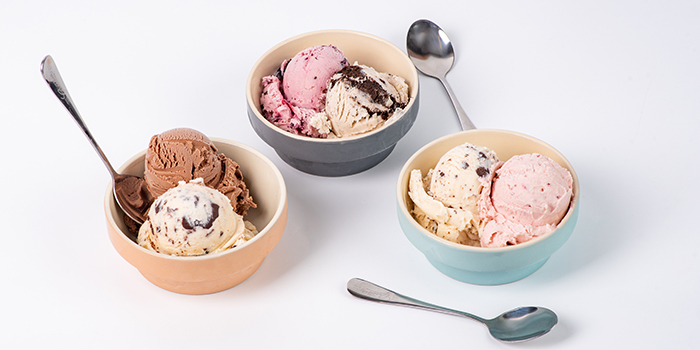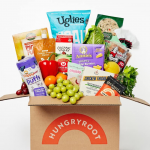Perfect Day & Graeter’s Partner for New ‘Indulgent’ Offering

After 150 years in business, Graeter’s ice cream CEO Richard Graeter says he’s still committed to using the same process his great-grandmother Regina used in the 1900s. But that doesn’t mean the family business is resistant to change: the Ohio-based company announced last week that it would launch a vegan version of its ice cream in collaboration with food tech company Perfect Day.
Under the sub-brand Perfect Indulgence, the line will launch with six flavors: Black Cherry Chocolate Chip, Cookies & Cream, Oregon Strawberry, Mint Chocolate Chip, Chocolate and Chocolate Chip. Each pint will retail for $7.99, a slight increase over the brand’s dairy pints which sell for $5.99 to $6.99. Perfect Indulgence will launch both online and in the company’s 55 scoop shops across the midwest.
Graeters, which is sold in 6,000 grocery stores across 46 states, is known for using a traditional “French pot” method to make its ice cream and for hand pouring its chocolate chips. The company’s 37 ice cream machines produce 2.5 gallons of ice cream at a time, with a batch requiring 15 minutes and machines running 20 hours a day. Perfect Indulgence will use the same process, incorporating Perfect Day’s “animal-free” dairy protein into a new base with plant-based fats, water and natural stabilizers.
While Graeter said that the company is not one to jump on a trend quickly, it became clear that the brand was missing an opportunity to reach vegan shoppers. Although many brands see non-dairy offerings as something flexitarian consumers may also buy, Graeter’s is targeting incremental dollars with the launch.
“Ice cream tends to be fad driven, and we try to stay above the fads, but then there are trends…non-dairy is a mega trend,” he said. “I’m not looking to switch dairy-customers to the animal-free dairy product, as I am looking to expand the universe of customers who can have Graeter’s.”
The company tried other non-dairy alternatives such as oat, almond, pea protein and coconut but found most imparted a distinct flavor. Though the company felt confident enough to release the new line, Greater believes it will just get “better and better” as new ingredients come to market. Still, Graeter added, the end product meets the target of being an indulgent offering.
“Graeter’s is a dessert and dessert is about indulgence. It’s not healthy, it’s better-for-you, it’s not a diet food,” he said. “And frankly, those better-for-you products, I think they work because they’re too nasty to eat too much of. They just don’t taste good.”
Given the challenges of shipping frozen products, launching an ice cream product online is unusual. But Graeter feels confident in the company’s ability to handle the orders, noting that it’s been shipping ice cream for close to thirty years. Due to the cult regional following of the brand, consumers long ordered the product for home delivery; the company now ships over 300,000 pints annually. Shipping ranges from roughly $80 to $110 for six pints.
Meanwhile, the move is also an interesting one for Perfect Day, whose co-founders, Ryan Pandya and Perumal Gandhi, launched their own ice cream brand, Brave Robot, in July. Though Brave Robot is a separate company, both Pandya and Gandhi are not only co-founders in the company but also its lead investors. Pandya told NOSH that while the two brands operate in the same category, success of either one will drive more consumers to explore animal-free dairy products, a win for all.
“The more success we can drive alongside our partners, the more success we’ll all have,” Pandya said. “But we also want to make sure that we’re helping our partners carve out ownable market positions, ahead of our larger scale commercialization plans.”
Graeter added that unlike Graeter’s small-batch, labor intensive process, Brave Robot uses a more “commercialized” or “industrial” process, offering a point of differentiation between the two lines. Furthermore, he said, if Perfect Day succeeds at its mission, having an ice cream product with this ingredient may just be the norm moving forward.
“I think one of the big questions is ‘is this the future of dairy?’ And I think it might be. Now is it five years, is it fifty years or is it 100 years, I don’t know…This is just another example of the next step in food innovation,” he said. “If this is the future of dairy, 50 years from now, I want Graeter’s to still be around. We’ve been around for 150 years, I’d love to be around 250 years from now.”



















